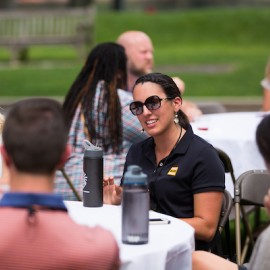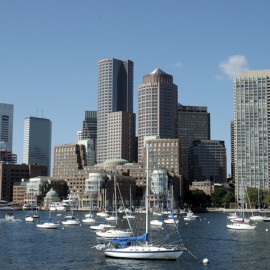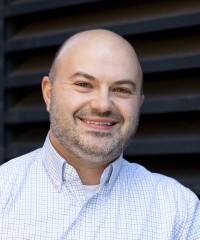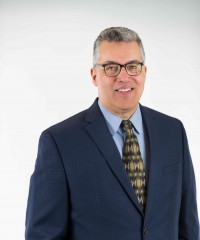
2019 Summer Institute in Communications and Marketing
Join us this summer to hit the books, review the basics and start on your path to success.
Benefits of Attending
The Summer Institute is a valuable investment in you and your organization. Through the institute you will have an opportunity to:
- Gain new ideas that will advance your institution in communications, marketing, digital media publications and more.
- Learn practical strategies that will improve and advance your marketing and communications initiatives.
- Discuss the ever-changing landscape of social media.
- Make valuable connections with peers who you can call upon throughout your career.
- Get a deeper understanding of how communication and marketing plays an important role in advancement.
- Understand issues currently facing higher education and discover how educational institutions are responding.
Who Should Attend
- Communication and web: Coordinators, specialists; assistant managers/directors
- Marketing: Coordinators, specialists; assistant managers/directors
- Publications: Coordinators, assistant managers/directors; writers
- Development communications: Coordinators, specialists, assistant managers/directors
- Editorial services: Coordinators, specialists, assistant editors/directors
- New managers or directors who are transitioning to educational advancement from another field, or who wants to better understand communications and marketing fundamentals
Special Events

Monday, July 29
6:00-7:30 PM
Welcome Dinner
Meet and mingle with attendees and staff while enjoying food, drinks and good company.

Thursday, Aug. 1
6:30-10:00 PM
Boston Harbor Dinner Cruise
Spend your last evening in Boston onboard a cruise. Enjoy dinner and socializing in Boston Harbor.
Keynote Speaker

Mike Petroff
Mike Petroff is a senior product manager at Harvard Business Publishing. He manages the ongoing development of the Higher Education website with a focus on acquisition and engagement. In his previous role as Director of Content Strategy at Harvard University, Mike led efforts to bring Harvard’s digital content to the world in innovative and effective ways. His team produced, distributed, and measured multi-channel content for flagship properties including Harvard.edu, the Harvard Gazette news website, email newsletters, and evolving social media and mobile platforms. Outside of Harvard, Mike regularly presents at conferences including Confab, SXSW Interactive, ContentEd London, and CASE on content strategy, social media, and analytics.
Program
Register now to secure your spot!
Early Bird*
$2,790, Member
$4,020, Nonmember
Regular Rates
$2,990, Member
$4,220, Nonmember
*Early bird ends June 4, 2019.
Registration is online only. CASE accepts payment by check or credit card for conference registration fees.
Meet Your Chair

Mike Barzacchini
Mike Barzacchini has worked in marketing communication and public relations for more than 25 years and has served as a CASE volunteer in various capacities more about 15 years. For the past 22 years, he has served as director of the Marketing Services Department at Harper College, where he developed Harper's first branding campaign and leads the college's integrated marketing, web, and social media initiatives.
Along with his higher education experience, Barzacchini has developed communication campaigns for healthcare providers, state government agencies, manufacturers and consumer service companies. Whether delivering a workshop, writing copy for a direct marketing project or planning a campaign, his work is guided by the following three principles: access, usability and relevance.
Lodging & Travel
The institute will be held at:
Boston University
Boston, MA 02215
Learn more about Boston University.
Boston University is located in Boston, Massachusetts, one of America's oldest and most beloved cities and the economic and cultural hub of New England. As the home of four of the five CASE Summer Institutes, Boston University is the perfect setting for advancement professionals to come together.
